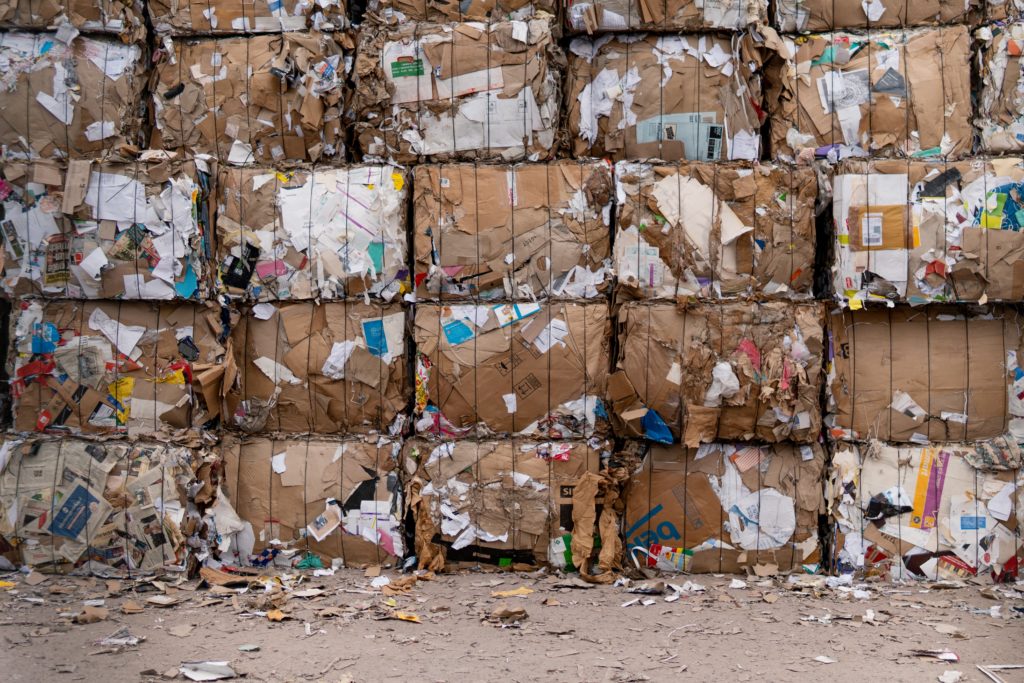
Blog
Maine’s Vision for Recycling Risks Getting Blurred by Politics
As the Maine Legislature continues its consideration of extended producer responsibility proposals, it must stay mindful that revenue should support solutions, not be the solution. Let’s work together to build an EPR system that sets the standard for other states, and begins to fix recycling now and for future generations.
Recycling in America is broken. It is, however, not without hope.
The Maine Legislature is on its way to passing a first-in-the-nation bill (LD 1541: An Act to Support and Improve Municipal Recycling Programs and Save Taxpayer Money) to finance recycling through an extended producer responsibility system that places financial responsibility on private industry producers rather than cities and municipalities.
Revenue should support solutions, not be the solution.
Charging packaging producers fees creates a steady source of funding for recycling systems to collect material for reuse — not for the landfill.
This legislation could shape the direction of states to follow and, if done right, could be the moment recycling is reshaped for the future. The trouble is, it’s not being done right, and Maine is on the precipice of failing the moment.
Maine has an opportunity to become the standard bearer for other states and have a meaningful impact on our national waste crisis. And the consumer packaged goods industry remains a willing and ready partner in helping Maine and other states that want to fix recycling. The industry owns its role in both the problem and the solutions to the packaging and waste crisis. That ownership includes assuming its share of financial responsibility; it does not include writing a blank check to government regulators.
We have seen that go awry too many times. Already, funding collected from bottle bills in many states goes to the general fund. Wasteful spending will worsen the waste crisis.
Wasteful spending will worsen the waste crisis.
In the consumer packaged goods industry’s view, successful EPR programs ensure funding is dedicated to recycling, rules are standardized, outcomes are measured and stakeholder input is valued.
Dedicated: Funding from EPR must be dedicated to improving the recycling system. On this point, there can be no shades of gray — otherwise we’re not fixing a broken recycling system, we’re just raising the cost to continue to fail.
Standardized: We also need to set up that system for success. One of the best ways to do that is by standardizing the definition of what is recyclable. What is recyclable in one town should be recyclable the next town over. Uniform rules offer clarity to consumers, manufacturers and waste management that will facilitate the highest-possible recycling rates.
Measured: Clear and measurable performance targets are critical to evaluating the success of EPR programs. It’s critical to ensure that the money is achieving its intent — and to know when course correction is warranted.
Engaged: Nothing will be solved in a vacuum, and stakeholder collaboration and input are essential to building a recycling system that works. Government must engage with industries paying into that system to offer them a voice, to ensure the funding is used appropriately and to share their expertise.
We own role in both the problem and the solutions to the packaging and waste crisis. That includes assuming its share of financial responsibility; it does not include writing a blank check to government regulators.
Unfortunately, the bill set to pass in Maine doesn’t guarantee any of the above. Allowing expedience to get in the way of smart policymaking will result in the state being first in the nation to fail.
Maine is advancing a flawed bill that doesn’t ensure funding is dedicated to successful recycling (and even threatens to expand scope to landfilling), restricts stakeholder input that is expected with landmark legislation like this and offers no incentives to promote or increase recycling — the true intent of EPR.
As the Maine Legislature continues its consideration of EPR proposals, it must stay mindful that revenue should support solutions, not be the solution. Let’s work together to build an EPR system that sets the standard for other states, and begins to fix recycling now and for future generations.
This opinion piece originally appeared in the Lewiston Sun-Journal.
Published on June 7, 2021



